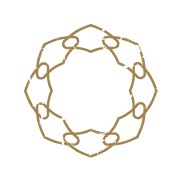Keep It Simple, Move Like a Human
At Uptown, we love variability. We love crawling, rolling, hanging, throwing, and lifting. We love training like humans move — not just machines. These movements are expressive, playful, athletic, and deeply useful. They’re what we want to do with our bodies.
But here’s the thing:
It’s hard to express what you don’t yet have.
You can’t throw well if your shoulder’s tight. You won’t roll or crawl well if your hips are stiff or your core can’t coordinate. Hanging? That takes grip strength. Lifting? That takes stability and power.
So before you can move like a wild, free human — you’ve got to earn it.
That’s why our foundation is simple: we build strength and mobility first. Consistently. Intentionally. Then we layer in the fun stuff.
And the good news? You can do the same.
Here’s a basic blueprint anyone can follow — just five movement patterns. Master these, and your body will thank you.
Your Simple Strength and Mobility Program
Start with 2–3 full-body sessions per week. Choose 1–2 movements from each category below. Stick to 3–4 sets of 6–10 reps (or 30–60 seconds, where appropriate). Rest as needed, move well, and progress over time.
1. Squat
What it does: Builds leg strength, hip mobility, ankle control, and core stability.
What it trains: Glutes, quads, core, and coordination.
How to start:
Goblet Squat (with a kettlebell or dumbbell)
Bodyweight Box Squat (if you're new or working on depth)
Tempo Squats (slow down the lowering phase to build control)
Progressions:
Reverse Lunge
Barbell Zercher squat
Bulgarian Split Squats
2. Hinge
What it does: Teaches you how to bend at the hips without hurting your back.
What it trains: Hamstrings, glutes, lower back, grip.
How to start:
Kettlebell Deadlift (start from an elevated surface if mobility is limited)
Romanian Deadlift (light to moderate weight, feel the hamstrings)
Progressions:
Barbell Deadlift
Kettlebell Swings (once technique is solid)
Single-leg RDL (adds balance + core challenge)
3. Push
What it does: Builds upper body strength and resilience in your chest, shoulders, and triceps.
What it trains: Pushing mechanics, scapular control, and stability.
How to start:
Incline Push-Up
Wall or Knee Push-Up
Dumbbell Floor Press
Progressions:
Standard Push-Up
Deficit Push-Up
Overhead Dumbbell Press (seated or standing)
4. Pull
What it does: Balances your push work, improves posture, builds upper back strength.
What it trains: Lats, traps, rhomboids, grip strength.
How to start:
TRX Row or Ring Row
Banded Pull-Down
Dead Hangs (to start building pull-up grip)
Progressions:
Negative Pull-Ups
Chin-Ups
Dumbbell Rows (single or double arm)
5. Rotation (and Anti-Rotation)
What it does: Builds a resilient core and prepares your body to twist, throw, stabilize — or not twist when you shouldn’t.
What it trains: Obliques, deep core, and spinal integrity.
How to start:
Suitcase Carry (hold a kettlebell in one hand, walk slowly, don’t lean)
Bird-Dog (simple, powerful anti-rotation core drill)
Half-Kneeling Pallof Press (using a band or cable)
Progressions:
Heavier Carries
Rotational Med Ball Throws
Cable Woodchops
Putting It Together
Here’s a simple sample session:
Full Body
Warm Up 3-5 minutes
Goal - raise your heart rate
Skip rope, ride a bik, walk or jog. Whatever feels good to you.
Prep - Circuit 2 rounds:
Goal - Activate the muscles around your shoulders, hips and core.
Deadbug x 20 seconds
Band Pull A Parts x 20reps
Hip Thrust x 20 reps
Strength - Circuit - 3 Rounds
Goblet Squat – 3 x 8 - 12
TRX Row – 3 x 12-15
Kettlebell Deadlift – 3 x 6-10
Incline Push-Up – 3 x 6-10
Suitcase Carry – 3x30 seconds each side
Rest a day or two. Then repeat with slight changes (more weight, one more rep etc. once it becomes easy change out the variation for something a little more complex).
Final Thoughts
You don’t need fancy gear or wild complexity. You just need consistency, effort, and a program that hits the fundamentals.
Get strong. Get mobile. Then go crawl, roll, throw, hang, and move like the human you are.
